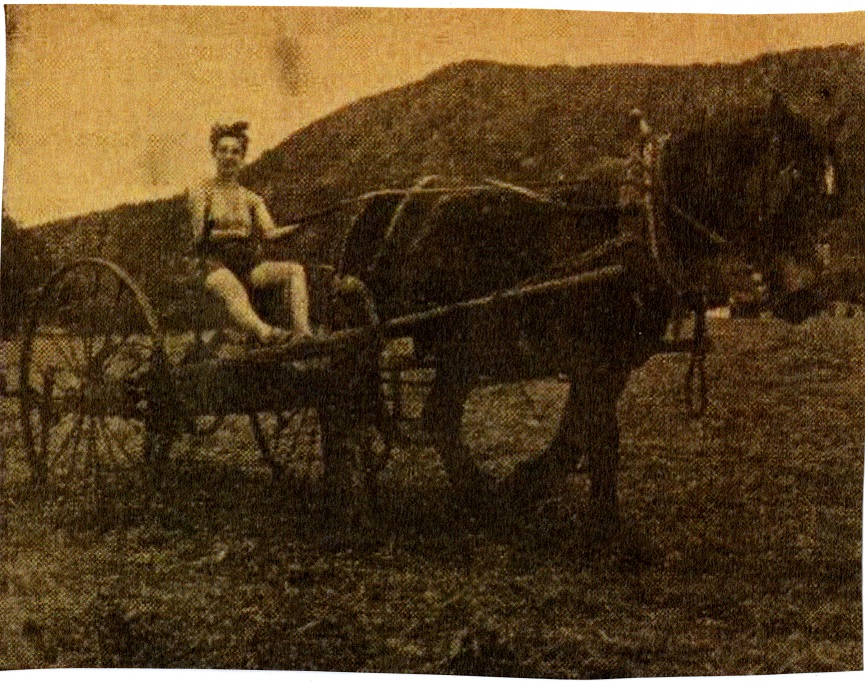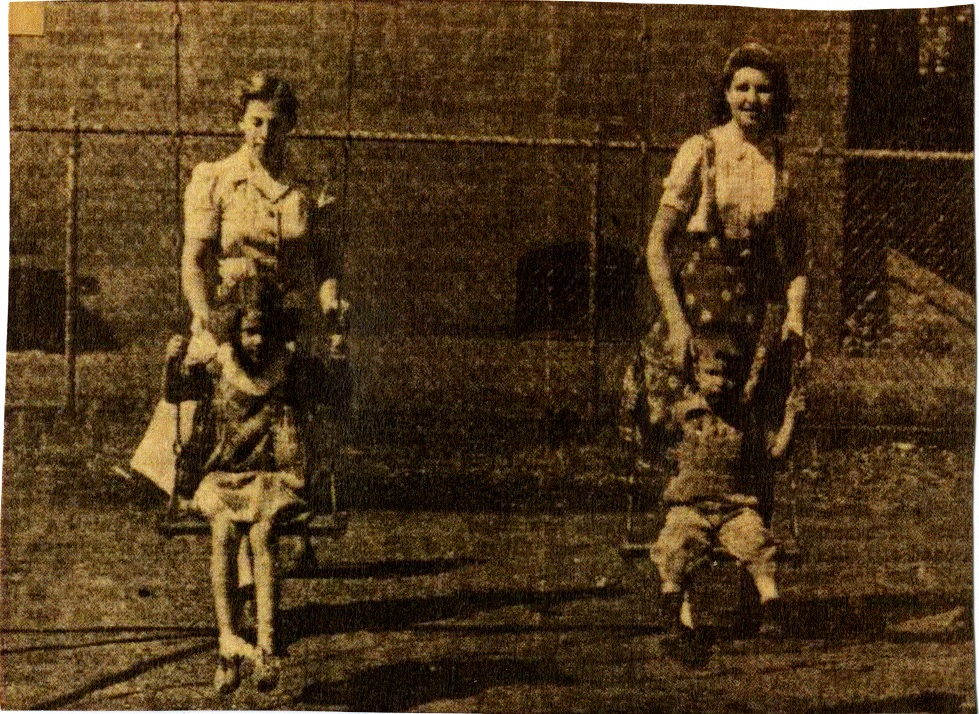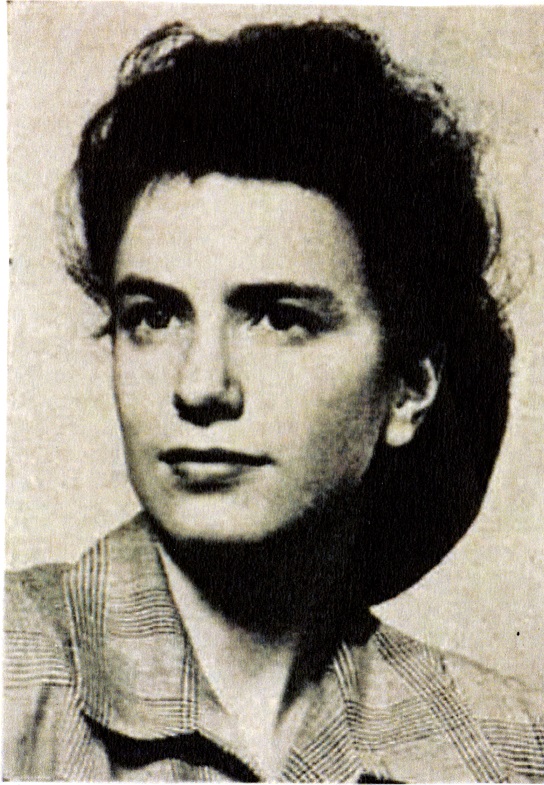With the rise of fascism over Europe in the 1930s, Mount Holyoke (urged by such prolific thinkers as Albert Einstein) established a Committee on Foreign Students. Einstein wrote to President Roswell Ham in 1941 to advocate for the College to establish refugee scholarships. Members of the committee characterized the work as stressful, as the limited amount of funds and spots for applicants meant they were turning away qualified students. Several of these refugee students were Catholic or Jewish, and President Roswell Hall expressed anxiety over their “religious assimilation” in letters to the committee.
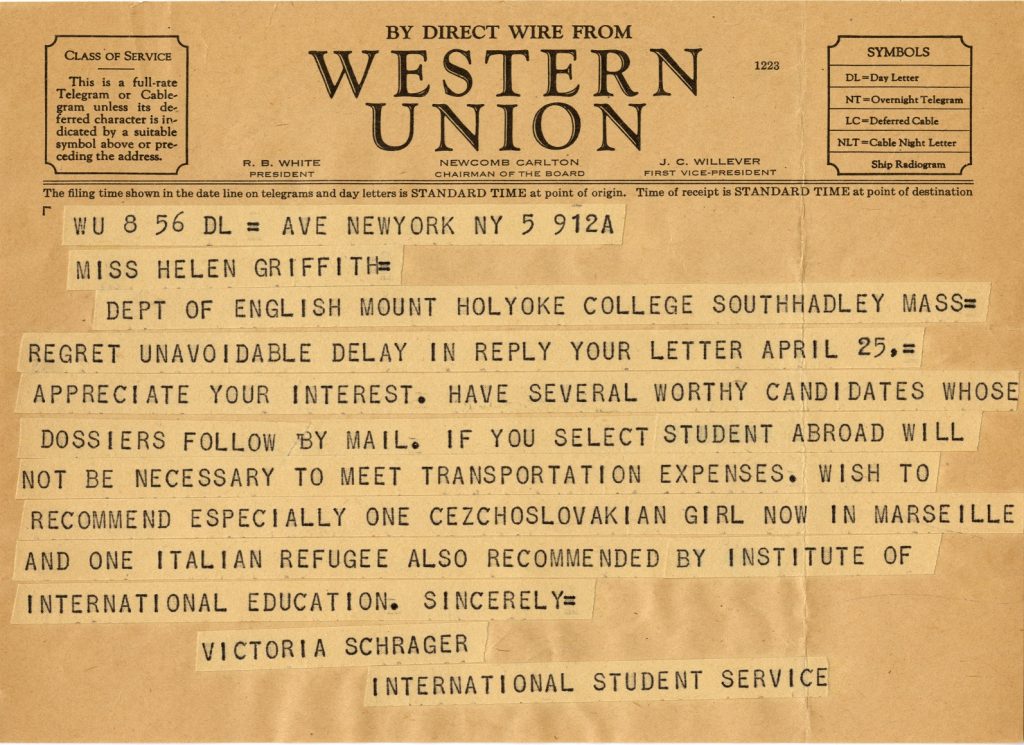
American students at this time rallied together to fund additional scholarships for international students, organizing dances, and speaking at alumnae events to further the cause. Professors allowed international students to live in their homes in exchange for minor housework, so the students would not have to pay for room and board. The work of the Mount Holyoke community saved the lives of several women through its fundraising and academic efforts.
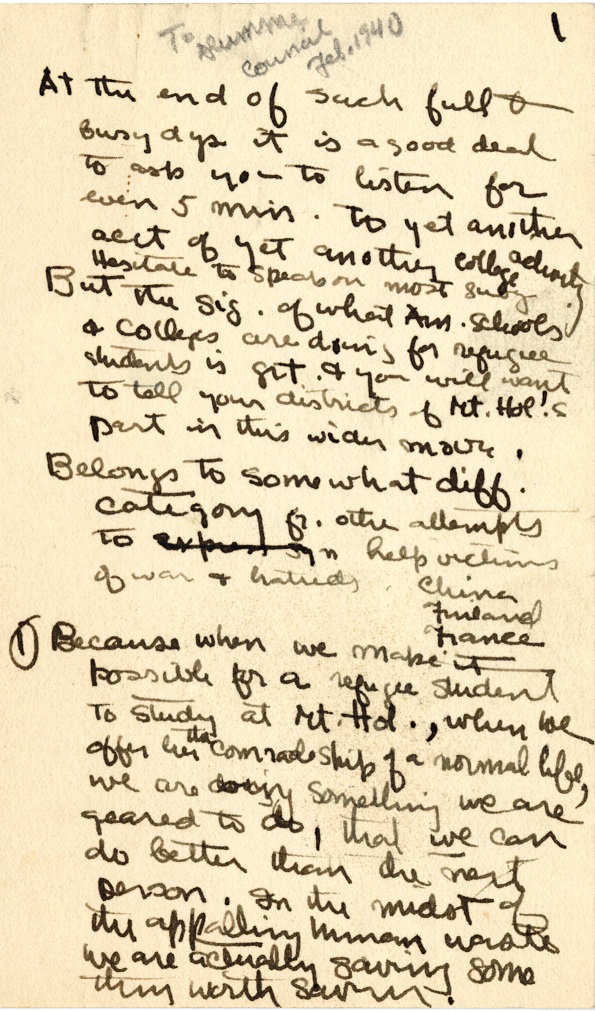
Barbra Passe (Germany), class of 1941, would reflect on her status as a refugee student by saying in her recollections of Mount Holyoke in 1991:
“For someone who had come from a Europe preparing for war, who had been deprived of physical and spiritual, who had known persecution, fear, and unhappiness, Mount Holyoke seemed like a world of unreality, remote from the actual struggle and conflict of the day. Later, I learned that this was not true; the very fact of my being there proved the contrary. But I believe that this feeling was the primary barrier between me and the College.”
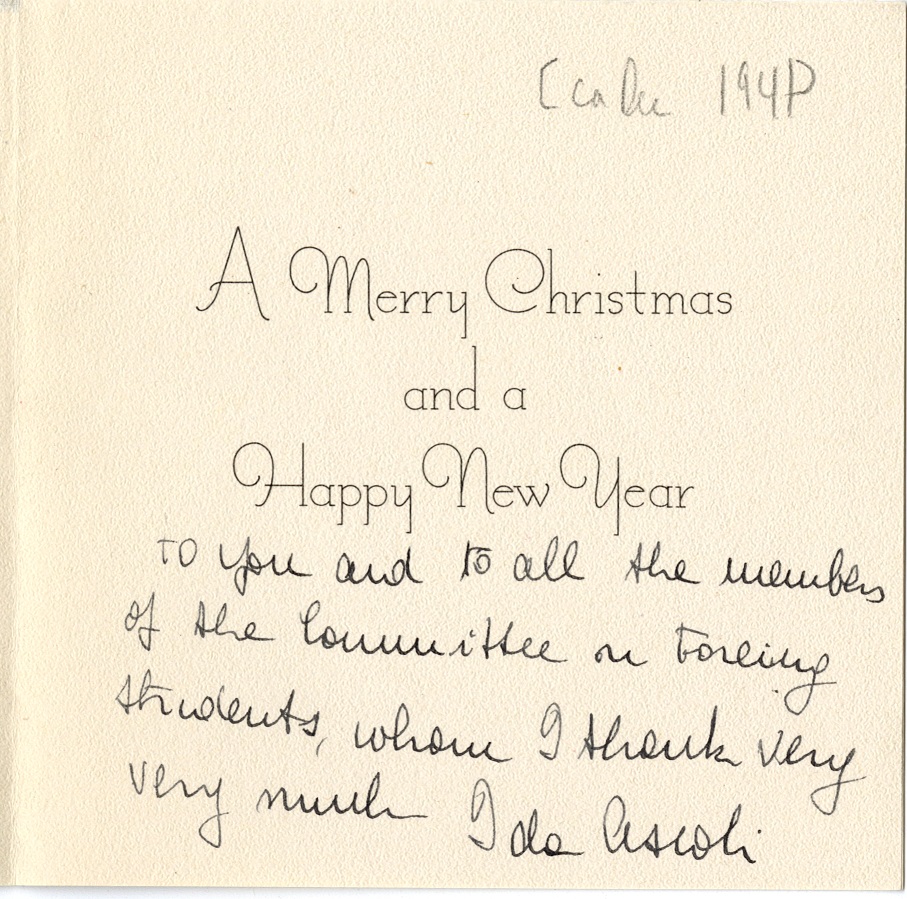
While refugee students became more common on campus, once the United States entered World War II, opportunities emerged for these students to join the International Student Service. As WAVES (Women Accepted for Volunteer Emergency Service) flooded the campus from 1942-1945, the summer of 1942 offered farms and community work in Holyoke for international students attending American colleges. Students would attend supplementary classes by Mount Holyoke professors focusing on international relations and the promotion of democracy. Students stayed in the Rockefeller dormitories during the session.
The above photograph of Barbara Passe, class of 1941, was attached to a reflective letter to the college describing her experiences at Mount Holyoke as a refugee student, written in preparation for her class’s 50th reunion. Due to her Jewish ancestry, Barbara fled Germany to study theology after the Nuremberg Laws rendered her unable to attend school. She went on to become a Presbyterian minister, citing her passion for faith as stemming from her experiences of rebellious pastors during the Nazi regime and her education at Mount Holyoke. Barbara spearheaded the sponsorship of over fifty refugees to the United States in the mid-1940s in her work as a minister and translator.
